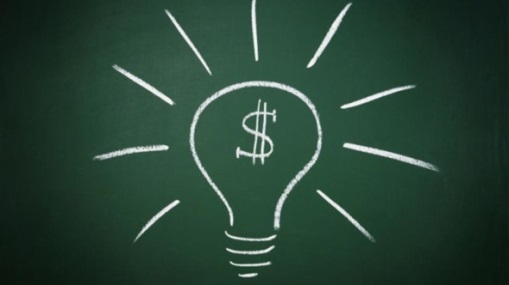 |
Innovation is fundamental to driving future productivity in Australia.
Australia is embracing innovation, resulting in a growing Australian start-up community. The Australian government has recognised and supported this drive to future productivity by changing legislation to help pave the way for successful start-ups. We explore some of the main start-up tax incentives below. |
Employee Share Schemes Start-up Concessions
Employee share schemes are interests in shares or options to acquire shares that are provided to employees because of their employment with a company. These shares are usually provided to employees at a price which is less than their market value. This discount to the market value is generally taxable to employees.
From 1 July 2015, amendments to the Employee Share Scheme (“ESS”) regime commenced. These amendments introduced ESS concessions for small start-up companies. Under these concessions, an employee is not taxable on the discount received. There are a number of conditions which must be met in order to obtain these concessions.
| Conditions to access ESS Start-up Concessions |
|
If the start-up concessions apply to an employee share scheme, the following tax benefits will apply:
- The shareholder is not taxable on the discount obtained on the shares;
- If the shares are subsequently sold (after 3 years), the capital gain will be equal to the sale proceeds less the market value of the shares at the time the shares were issued. A 50% Capital Gains Tax discount will apply to reduce the gain.
Example: Start-up Company (ESS interests acquired after 30 June 2015)
Ludo’s Lounges Pty Ltd is an Australian resident company that has been incorporated for three years and is not listed on any stock exchange. Ludo’s Lounges had an annual turnover of $4.2 million in the most recent income year. It does not have a holding company or any subsidiaries but it does have one affiliate, House Upholstery Pty Ltd. House Upholstery had an annual turnover of $1.7 million. Therefore, Ludo’s Lounges’ aggregated turnover for the 2015 income year was $5.9 million ($4.2 million plus $1.7 million).
As Ludo’s Lounges is not listed on any stock exchange, was incorporated less than 10 years before the end of their most recent income year and has an aggregated turnover for that year of less than $50 million, it is a start-up company.
An employee, Sarah, is provided with 2,500 shares in Ludo’s Lounges under an ESS that meets the general conditions for concessional tax treatment.
The market value of each Ludo’s Lounges share when Sarah acquires them is $1.00. Sarah pays $0.85 per share, which means she has acquired them at a 15% discount ($1.00 – $0.85 = $0.15). Therefore, Sarah’s ESS interests will qualify for the start-up concession if she meets her personal conditions. After acquiring the shares, Sarah holds a 1.2% interest in the shareholding and voting rights of the company. Ludo’s Lounges advises Sarah that all of the conditions for the start-up concession have been met and provides her with an ESS statement.
Sarah does not need to report an ESS discount amount in relation to the acquisition of the shares in the income year that she acquired the shares. However, under the capital gains tax rules, she will need to report her capital gain or capital loss when she later sells the shares.
Tax Incentives for Early Stage Investors
From 1 July 2016, investors who invest in a qualifying Early Stage Innovation Company (“ESIC”) may be eligible for various tax incentives.
What is an ESIC?
An ESIC is a company that meets both the “early stage test” and either the “100-point innovation test” or the “principles-based innovation test”.
A company must meet the following four requirements in order to meet the early stage test:
| Conditions to meet the Early Stage Test |
|
In order for a company to meet the 100-point innovation test, the company must obtain at least 100 points by meeting certain objective innovation criteria. The criteria and associated points are detailed on the Australian Taxation Office’s website – click here to view.
In order for a company to meet the principles-based innovation test, the company must meet the following five requirements:
| Requirements to meet the Principles-based Innovation Test |
|
Qualifying for the Tax Incentives
Once it is determined that the company being invested in is an eligible ESIC, investors need to meet certain criteria themselves to be eligible for the incentives.
Investors will qualify for the tax incentives if they meet the following criteria:
| Criteria for Investors to Qualify for the Tax Incentives |
|
What are the Tax Incentives?
An investor, who meets the criteria to qualify for the tax incentive, will obtain the following tax incentives:
- A non-refundable carry forward tax offset equal to 20% of the amount paid for the shares up to a maximum tax offset of $200,000. This means that an investor purchasing $1m worth of shares will be able to reduce his/her income tax in the year of investment by $200,000. If the investor’s income tax is less than $200,000 then the unused offset amount can be carried forward to the next tax year. If the investor is a partnership or trust, the entitlement to the tax offset will flow through to the partners of the partnership and beneficiaries of the trust. If the investor is a superannuation fund, the fund will be entitled to the tax offset and not the members of the fund.
- A Capital Gains Tax concession, under which capital gains made on the shares will be tax free provided that the shares are held for at least 12 months and less than 10 years. If a capital loss is made within the same period, the loss must also be disregarded.
Example: Calculating the Early Stage Investor Tax Offset
Savannah, a sophisticated investor, pays $4 million for new shares in ESICs during the 2016–17 income year.
Although 20% of the total amount Savannah has paid for the ESIC shares is $800,000, her entitlement to the early stage investor tax offset is capped at $200,000 (provided the other eligibility requirements for the incentives are met).
Savannah has an income tax liability of $50,000 for the 2016–17 income year. She uses $50,000 of the early stage investor tax offset to reduce her tax payable to zero. Savannah can carry forward the remaining $150,000 in early stage investor tax offset to future income years.
The modified CGT treatment applies to all of the shares that she purchased.











Sorry, comments are closed for this post.